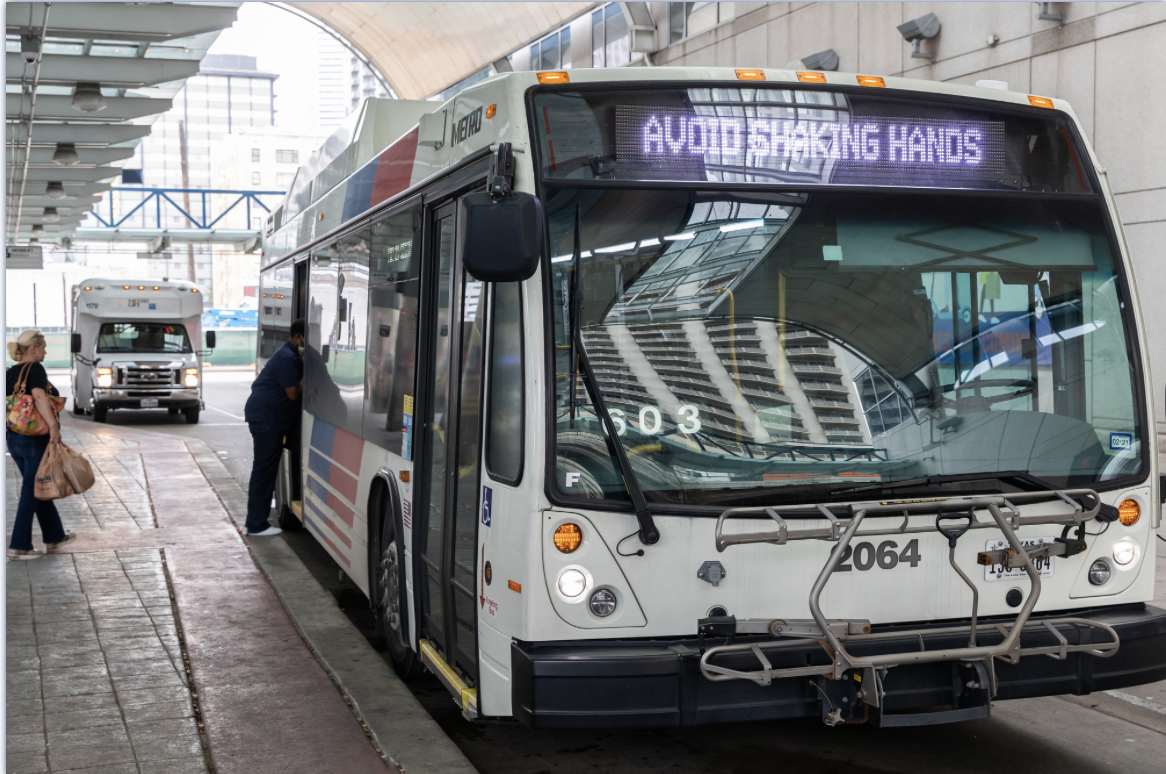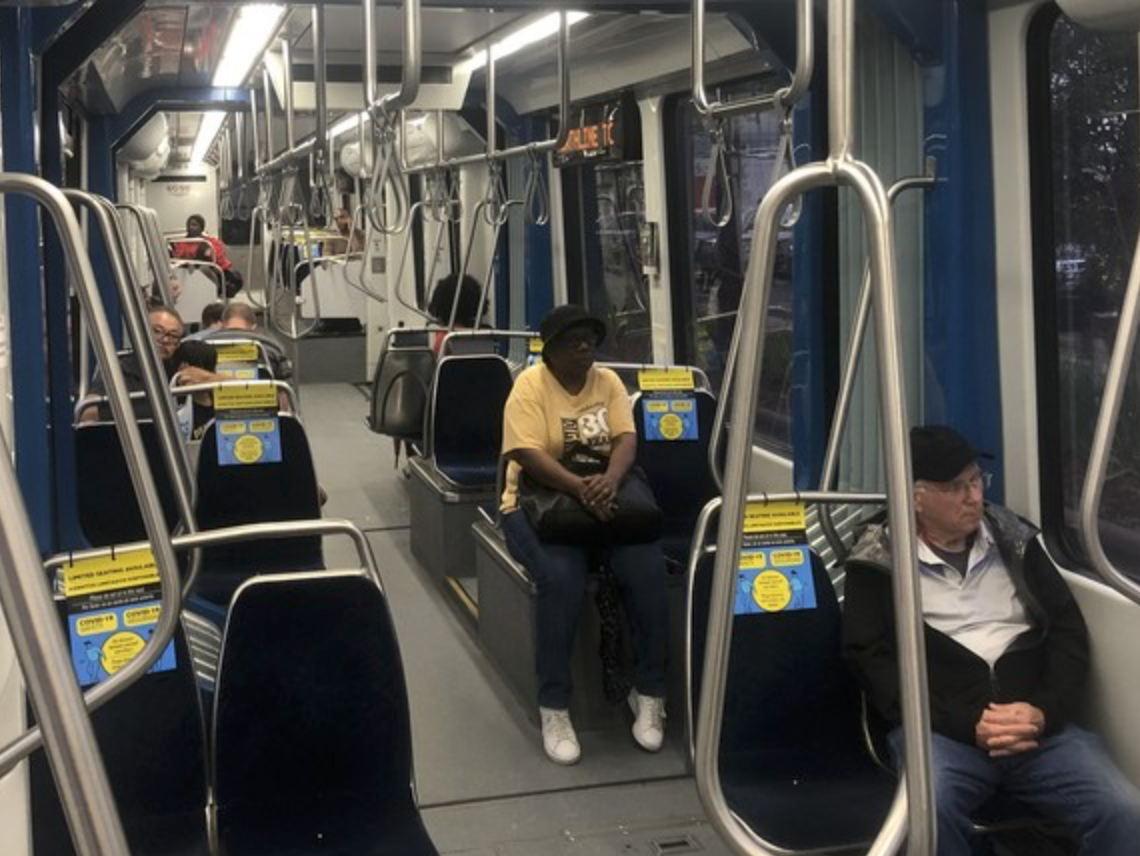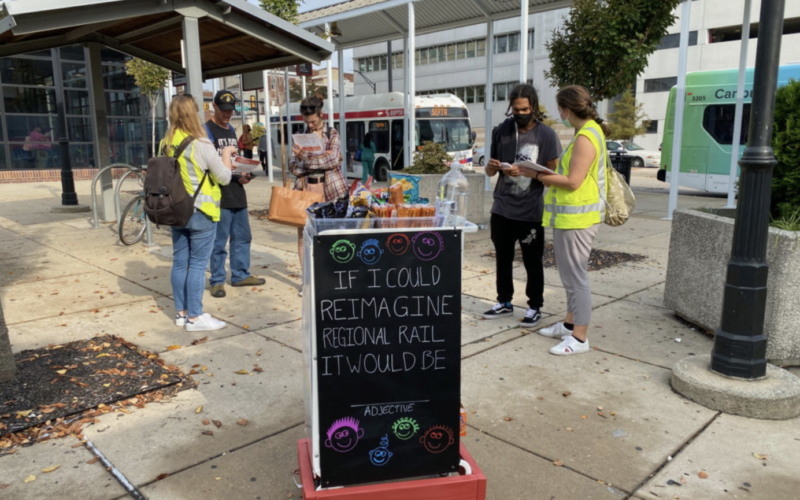
As the COVID-19 pandemic changes how transit agencies around the country operate, Houston METRO has quickly emerged as a leader, taking extra precautions to provide essential mobility for frontline workers at hospitals and grocery stores. Within days of recognizing the severity of the crisis, METRO made prudent decisions that improved safety for vehicle operators and riders while continuing to run service.
Tom Lambert, METRO’s CEO, gives his staff full credit for their timely and creative response to the crisis. “They really thought outside the box. Our marketing people, our communications people, our operations people, and our union, everybody came together to say, ‘How can we do this?’”
In its response to the crisis, the agency wanted to ensure that riders heard the social distancing message loud and clear. METRO quickly decided to waive fares and implement rear-door boarding on its buses, in an effort to limit operator interaction with riders. The agency pioneered the use of simple printed signs placed on 50% of the seats on its light rail cars and buses, indicating that passengers should not use them.

METRO’s print shop has produced over 200,000 materials encouraging social distancing on transit.
To help spread riders out, METRO also began rerouting buses from low ridership routes onto higher ridership ones. Once buses reach 50% capacity, the agency has instructed operators to put up their “next bus” signs and to skip stops. In recognition that one third of the 106,000 employees at the Texas Medical Center commute by transit, Metro added shuttle buses to support social distancing for hospital workers.
METRO has gone on a communications blitz to tell riders about the rapidly changing protocols. To do so, it has relied on service alerts, social media, announcements on trains and buses, and targeted emails. “I think we’re up to probably about 75-80,000 touch points with people who ride our system with targeted messages to them in a dedicated e-blast,” says Lambert.
The agency has also been frank with customers about the fact that countdown clocks and real-time info will no longer be reliable, in light of the ever-changing conditions. “We’re in constant communication with public health officials, emergency management officials, and the elected leadership in the region to make sure that all the things we’re doing are in support of the messaging that our leaders are putting out,” says Lambert.
METRO has applied the same level of attention to communications with operators, updating them multiple times a day through emails, in-person visits from management, print-outs, and an internal messaging platform called “transit minute.” The agency has also provided operators with info sheets summarizing messages to share with riders.
METRO also moved its board and committee meetings online, the first of which happened this week. “We’ve adapted the governance structure to make sure we’re continuing to be open with the public on the business that the agency runs,” says Lambert.
Thus far, ridership drops on METRO have not been as steep as in other cities. As of Monday, the agency was still carrying 160,000 boardings a day, about 40% fewer than normal. That number dropped to 119,000 by Thursday, a likely result of the Stay at Home order issued in Harris County. According to Jerome Gray, METRO’s Chief Communications Officer, “METRO continues to monitor ridership and other factors given the stay at home order, and will adjust services as needed.”
Some of METRO’s flexibility comes from the fact that it’s no stranger to disruptive events. Whether it’s responding to operational challenges presented by frequent hurricanes or Superbowl events, a culture of emergency management permeates the agency. “It’s not something we talk about when an emergency hits, it’s something we talk about all of the time,“ says Lambert.
The advantage of the system they’ve set up is that it allows for adaptation as conditions change on the ground, he explains. “You give very talented people the opportunity to move forward, empower them to do so and they produce good products.”
 New TransitCenter Report: To Solve Workforce Challenges Once and For All, Transit Agencies Must Put People First
New TransitCenter Report: To Solve Workforce Challenges Once and For All, Transit Agencies Must Put People First
TransitCenter’s new report, “People First” examines the current challenges facing public sector human resources that limit hiring and retention, and outlines potential solutions to rethink this critical agency function.
Read More A Transit Revolution in Philadelphia?
A Transit Revolution in Philadelphia?
The Southeastern Pennsylvania Transportation Authority (SEPTA) has been working throughout the pandemic on several system-wide planning initiatives that have the potential to transform transit service in and around the city of Philadelphia.
Read More